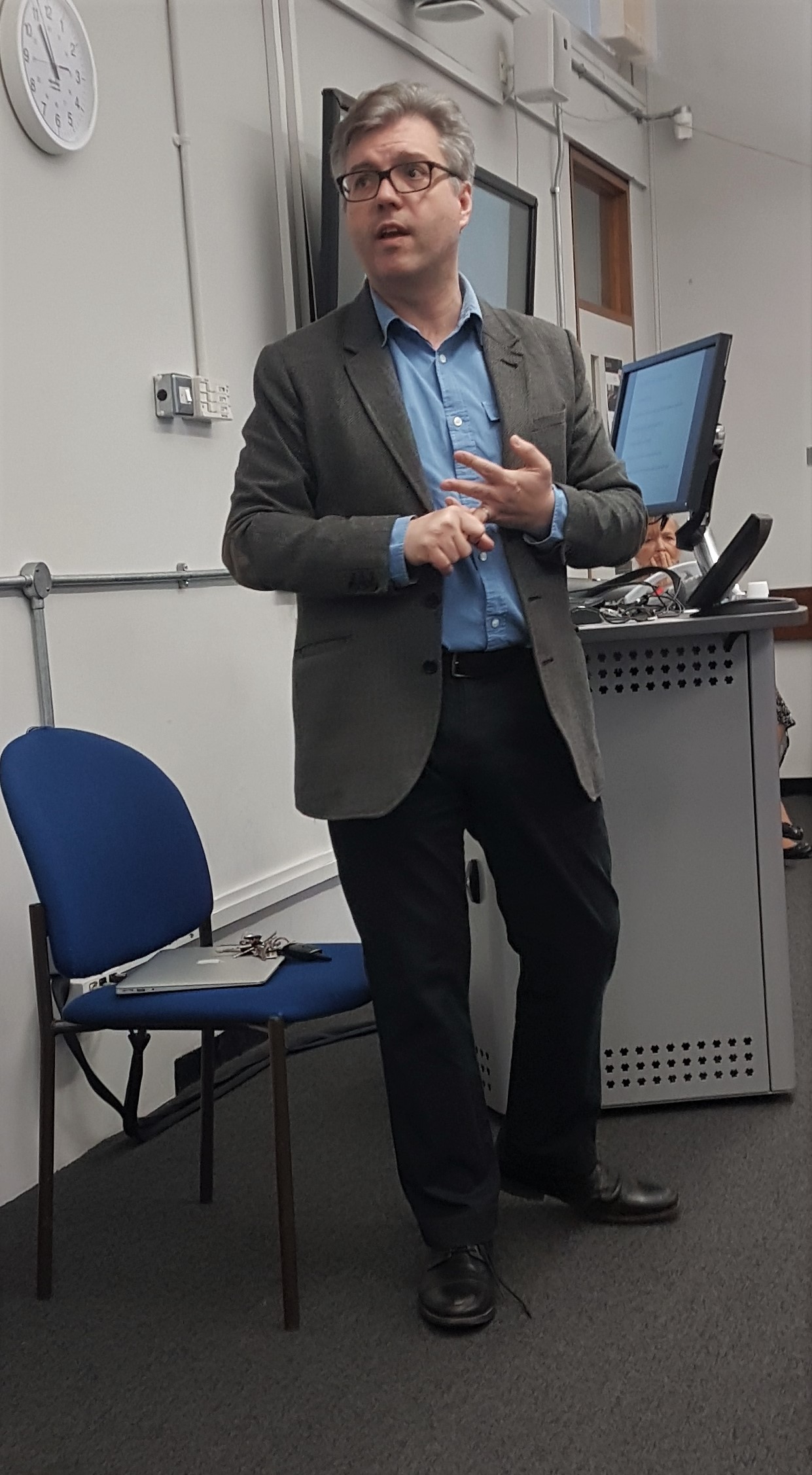By Hannah Pugh and Marc Doyle
Last week, the trainees on the doctorate course in educational psychology at the University of Birmingham came together for a day on mental health. The morning focused upon the role of psychiatrists and we were fortunate to hear about this from Professor Matthew Broome (Director of the Institute for Mental Health). One aspect of Matthew’s presentation that was particularly interesting was the parallels in the way psychologists and psychiatrists think about and formulate the needs of the people with whom we work. In the afternoon, we discussed some of the areas that are relevant to both psychiatry and psychology, including the use of diagnostic labels in practice.

When discussing the role of psychiatrists, Matthew gave us many interesting examples of what the day to day life for a psychiatrist can involve. This included completing legal reports, working with people exhibiting severe symptoms of mental health needs and working one to one with children to review medication. Within this there were some clear differences between the roles of educational psychologists and psychiatrists, for example in the use of prescribing medication, and having legal powers under the mental health act. Discussion between the trainees and Matthew focused on questions around the role of medication and how professionals might view this differently. Matthew spoke of the need to consider evidence of what works and that medication does have a role in treatment.
While educational psychologists often regard their role as quite distinct from that of psychiatrists, there were some interesting parallels in Matthew’s reflections of working within a wider team of professionals. Matthew spoke about the psychiatrist often being the professional who is asked to become involved when other members of the team need help with a case and also when there are conflicting views within the team about a client. Matthew spoke about the need to take a holistic approach, including an understanding of the wider context of social inequalities, something that is a concern for many educational psychologists. He ended with a quotation about how we use evidence in practice that will resonant with many psychologists: “evidence based science works in some places but not necessarily here”.
In the afternoon we had a number of discussion topics beginning with the thorny issue of diagnosis and labelling. We recognised that this this not a simple issue. Defining a condition by behaviour can be problematic because what people think these conditions are changes all the time. The same behaviours may have different causes on different occasions, and the way that behaviour is measured and assessed is not consistent across services. On the other hand, a diagnostic label can encourage empathy and give young people access to support and resources.
Diagnosis of behavioural conditions can be an uncomfortable topic for many practitioners. During our discussion, it was noted that if educational psychologists completely remove themselves from the diagnostic process, then this passes the burden onto professionals who specialise in other areas and may be less skilled in assessing behaviour.
A hot topic of conversation was trainees’ experiences when working alongside CAMHS teams. Some had found maintaining communication with CAMHS teams difficult, and attributed this to mental health teams being pushed beyond their capacity. Several trainees were able to share very positive stories of working alongside CAMHS teams, and noted particular success in being able to engage in joint work with clinical psychologists.
Overall the day provided a useful introduction to some of the issues raised when educational psychologists work alongside medical professions. It was helpful to see the similarities and differences in approaches. It is inevitable that educational psychologists will work with children and young people who have a medical diagnoses and it was helpful to consider how we might take account of this in our work. .
Hannah and Marc are Year 1 trainees on the initial training course for educational psychologists at the University of Birmingham.
If you enjoy our blog please follow us and you will receive an email every time we have a new post.
